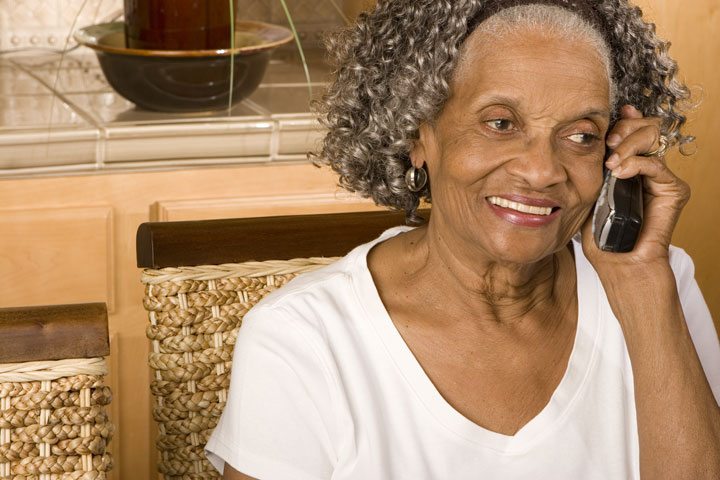Our elders are fiercely independent — that’s a fact. Poll after poll finds that nearly all older adults want to stay in their homes until the very end. So many factors threaten their ability to continue living independently. No one truly anticipates getting dementia, becoming immobile or fighting a life-threatening disease, but the older we get, the more likely we all will suffer from an issue that will threaten our independence. For many, it will take a life-threatening issue to take their choice to live at home away. It’s usually an adult child that has to make that decision against their parent’s wishes, creating an emotional tug-of-war that leaves everyone “the loser.”
So how can we prepare ourselves and our older loved ones for the possibility of having to leave home? What alternatives are there to leaving home and how can we include our elderly parents in the decision making before it becomes an issue?
Start with a Talk
Your older loved one is not the only person in their world to be facing these kinds of issues. Sometimes it helps if they know someone they care about that has gone through the fire, so to speak. It can open their eyes to what might happen to take away their choice to stay at home. You may want to talk about the “what if” scenario but start with ”I’m concerned mom (or dad) and want to make sure we make a decision that is best for you should something happen.”
It might really help to have a note pad handy and take notes on what your elder says. Ask them what they’d choose to do if they could no longer get around or begin to have trouble remembering. Would they want some in-home care? Would it be possible for them to live with you or another relative? What can they afford it they should need more help? Do they have long-term care insurance? What costs will their health insurance cover?
It’s likely to take a lot more than just one talk, but getting the conversation started can get all of you thinking about what might be best in the worst case scenario. Making them part of the process can strengthen your relationship and build even more trust between you and your parent.
Failing to Plan is Planning to Fail
The good news is that there are more and more choices that can be made. Some families choose to have an adult grandchild who needs housing while attending college to become a housemate. There are an abundance of in-home care companies that can be very helpful during a recovery period. There are independent living and assisted living facilities, group homes, and senior apartments with services that come to help. If staying at home is paramount to your parent’s happiness, every available choice should be considered. Free help is just a phone call away with services such as “A Place for Mom.” Your parents’ health insurance may also provide coverage that will help you choose the best options.
Waiting is the enemy. It can take all the choices away. Too often, no plans are in place and the elder and their family are left with frantic searches to keep their loved one healthy and safe.
Worst Case Scenarios
Every decision becomes a lot more challenging when a loved one has dementia. Some patients with dementia are easy to care for while others become hostile to everything. The last worst step may take you and your loved one to court. Those with dementia are so vulnerable to everything and anyone with an ulterior motive. Keeping them safe means keeping their resources safe also.
Leave the Guilt Behind
Doing what’s best for your loved one might involve doing something they don’t want to do. Don’t take it personally — just do your best.
I have interviewed many seniors in assisted living who said they had never wanted to leave home but it was the best thing that ever happened to them. Many found a freedom from not having to worry about home maintenance, or falling without someone there to help. Once they settled in, they began to love having people their own age to talk to and eat with. The activities added to the quality of their lives beyond anything they could have imagined.
(This article was reviewed April, 2024 since it originally published October, 2016.)
